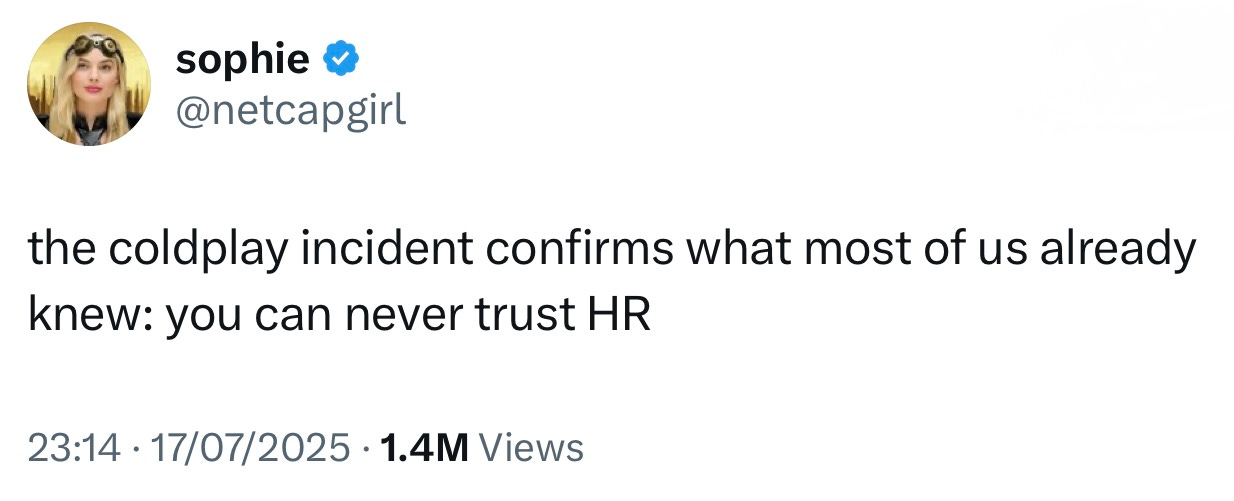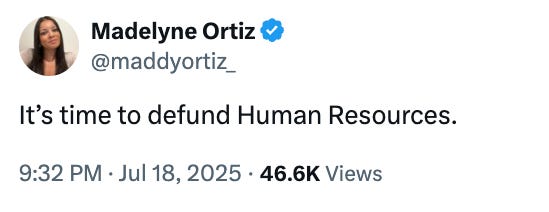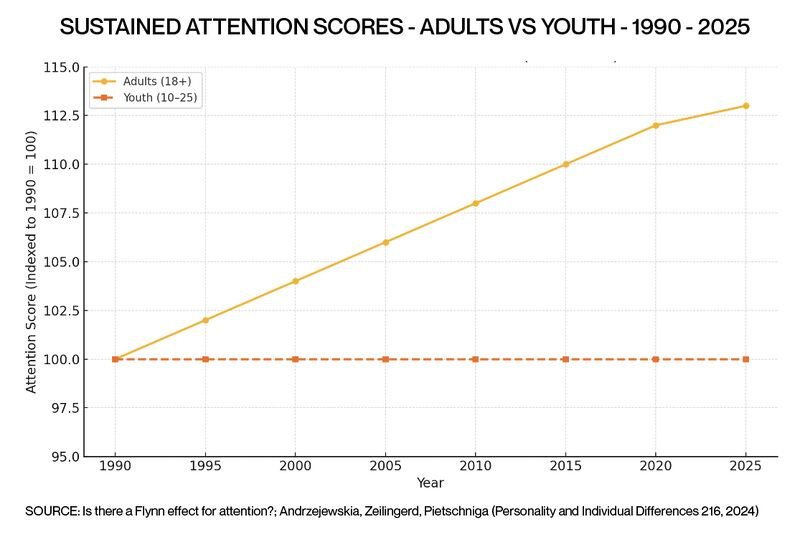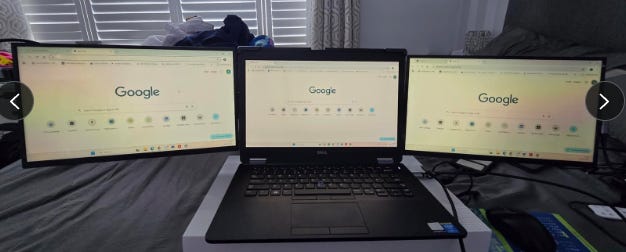How Octopus Energy used culture to reach the top
ALSO: new data on attention spans suggests the problem was you being boring after all
I’m often asked asked which company cultures I admire, especially as I tend to be critical of the culture inside tech firms. It’s easy to have good vibes in small firms but organisations who manage to deliver good culture at scale are the ones I’m most interested in. I often call out Nando’s or Octopus Energy.
I was delighted to get the chance to talk to the CEO of Octopus Energy Group, Greg Jackson. I’ve often reflected that the best cultures seem to be codified and made explicit, but Octopus’s culture isn’t really defined by formal values, Jackson doesn’t pin it down to three or four words. Instead the culture has a vivid feeling but is loosely articulated, a tangible mix of trust, autonomy and a shared mission.
Cultures are often defined by what they’re against as much as what they are for. Many companies give a laundry list of desirable attributes they strive for. There’s an organisation at the end of my street that has ‘excellence’ and ‘respect’ on its windows, but would any business claim to be built on mediocrity or disrespect? Aren’t they just given? Sometimes these things are called the Pillars of Character. Yes, we have integrity here, but how does that help you work here?
For businesses these pillars are useless for creating differentiation. Jackson’s approach at Octopus stands apart from that, he takes issue with common norms elsewhere. Researching for the conversation I listened to one interview where Jackson talked about the absence of back-to-back meetings in his day. He said:
First of one thing I do that I think is unusual is I don't pack my day with meetings. I'm religious about having lots of time outside meetings because in the one hour that someone wants to have a meeting, I can make 10 phone calls or I could drop by the desks of half a dozen team members and I can be available for people to deal with what's going on that day. So one thing for me is your time is far too precious to let it get soaked up on other people's meeting requests. It's quite funny when I got a new PA, she came from a very large software company and I said, ‘I've got a lot of meetings tomorrow’. And she said, well, where I used to work, my job was to pack from 8 AM to 5 PM every day, hour by hour by hour. And I was like, Whoa, how does that person get any thinking time? How does it get any, any time to reset? And how does it get to do anything proactive that changes the world?
After the conversation, which was recorded live on stage near Guildford, someone came up to me. ‘My son works at Octopus,’ he said. Here we go, I thought. ‘Every single word he said up there is true. He says he wishes he’d joined there years ago’.
Take a listen, I’d love to hear your thoughts.
Listen: Apple / Spotify / website (website being fixed this week, kids)
The time that parents spend with children has risen massively in the last fifty years. In 1961, mothers spent an average of 96 minutes per day with their kids, which increased to 162 minutes per day in 2015. Dads had 18 minutes of childcare per day in 1961, which quadruled to 71 minutes per day in 2015 (UK data). But parents are wanting to spend even more time with their children - 85% of dads say being a good parent is the single most important part of their identity. This article goes through the challenges this creates with modern work
Dystopian news story from King the makers of Candy Crush. The company, which is owned by Microsoft, fired 200 people this month, replacing them with the AI tools that they had recently built. One employee told MobileGamer, "Most of [the] level design [team] has been wiped, which is crazy since they've spent months building tools to craft levels quicker. Now those AI tools are basically replacing the teams." There was a suggestion that the most vocal critics of the new ways of working were singled out for dismissal and that HR was credited with enforcing these choices. "King HR is an absolute shitshow and has been for years," said one employee, calling it "An extreme example of an HR department whose role it is to protect the company, not the staff."
I loved this Adam Grant podcast this week which challenges the idea that our attention spans are declining. When research was conducted it found that attention amongst children is unchanged in 30 years, attention of adults has actually gone up. The reason why your team are zoned out is because you are creating boring meetings:
A HBR article that mines the same seam that I mentioned a few weeks ago, that one-to-one meetings aren’t the cure-all for creating better organisations. There’s an oppressive consensus around one-to-ones, suggesting that they are so essential that they should be generously abundant. The norm is considered so inarguable that suggesting something different is seen as disconnected and out-of-touch. It’s exactly the same argument that allowed meetings to fill 30 hours a week of senior leaders’ calendars. The logic is that all communication is valuable for a business, and therefore not wanting to catch up with another team is a sign that you don’t value feeling connected. It’s flawed logic. Yes, giving someone feedback is valuable but this should be both timely (immediately after something happens for five minutes) and structured (finding a regular slot on the calendar to put the breadcrumbs of feedback into context). The idea that this has to be weekly is merely subjective opinion. The article argues that ‘capability meetings’ work better
If you’re like me you find ‘work trends’ to be nonsensical then this piece will capture some of the silliness: ‘Are you sure these are new workplace trends? Are you sure you aren’t just describing a routine phenomenon in an alarmed way’
Economist Daniel Susskind has announced a series of free lectures about the future of work (running into 2026). Topics include the evolution (and limits) of education, ‘automation anxiety’ and ‘a world without work’ - looks fascinating (I suspect I’ll mention them again when they go live)
It always interests me that the camera set up for most Twitch streamers is better than most CEOs, it’s strange that we’ve got into the routine of spending two days a week at home while not taking our video set-up seriously. In that spirit I enjoyed getting an insight into what Lloyds Bank have been doing to improve their team All Hands quality (from Tom Kegode, their outgoing culture lead who has set-up a culture consultancy). I know this obsession with cameras might feel like Lockdown Tech Support but it’s something that’s worth revisiting. This clip by Tim Cameron-Kitchen gives you a bootcamp of fixing up your set-up, taking you through cameras, three point lighting and much more
A new report suggests that disused offices would make fantastic ‘party zones’ (with no Nimby neighbours). ‘We envision a future, where financial districts in London and the world over are transformed into world-class late-night party zones’
Some interesting stats in this research deck from Matthew Cook:
46% of managers believe their workplace relationships have become more transactional in the last few years
for every 10 people in a training session 7 are doing something else while doing it
Apropos nothing, I wasn’t even aware that this was a thing but I was dazzled by it. I walked into a client meeting this month and someone had a multiscreen set up on their laptop. A bit like this (obviously I couldn’t photograph their computer IRL). I had one of those feelings where I was like ‘has everyone been doing this and I’m the last to know?’ This sort of thing. Stunning effort all round:
Thanks to Rob Mansfield for the Millennial Dads link. There’s a slower cadence to the newsletter in August but I do have a revisionist podcast about Premier League managers, psychological safety and addressing my own mistakes coming up for the start of the season, so look out for that one.









Why are we defunding HR when we could defund CEOs?? ;)
I have had a terrible customer experience with Octopus Energy, with their customer support staff being rude and unresponsive. After 7 months, my issue is still pending with them. This article has just totally lost me, I am unsubscribing this substack now.